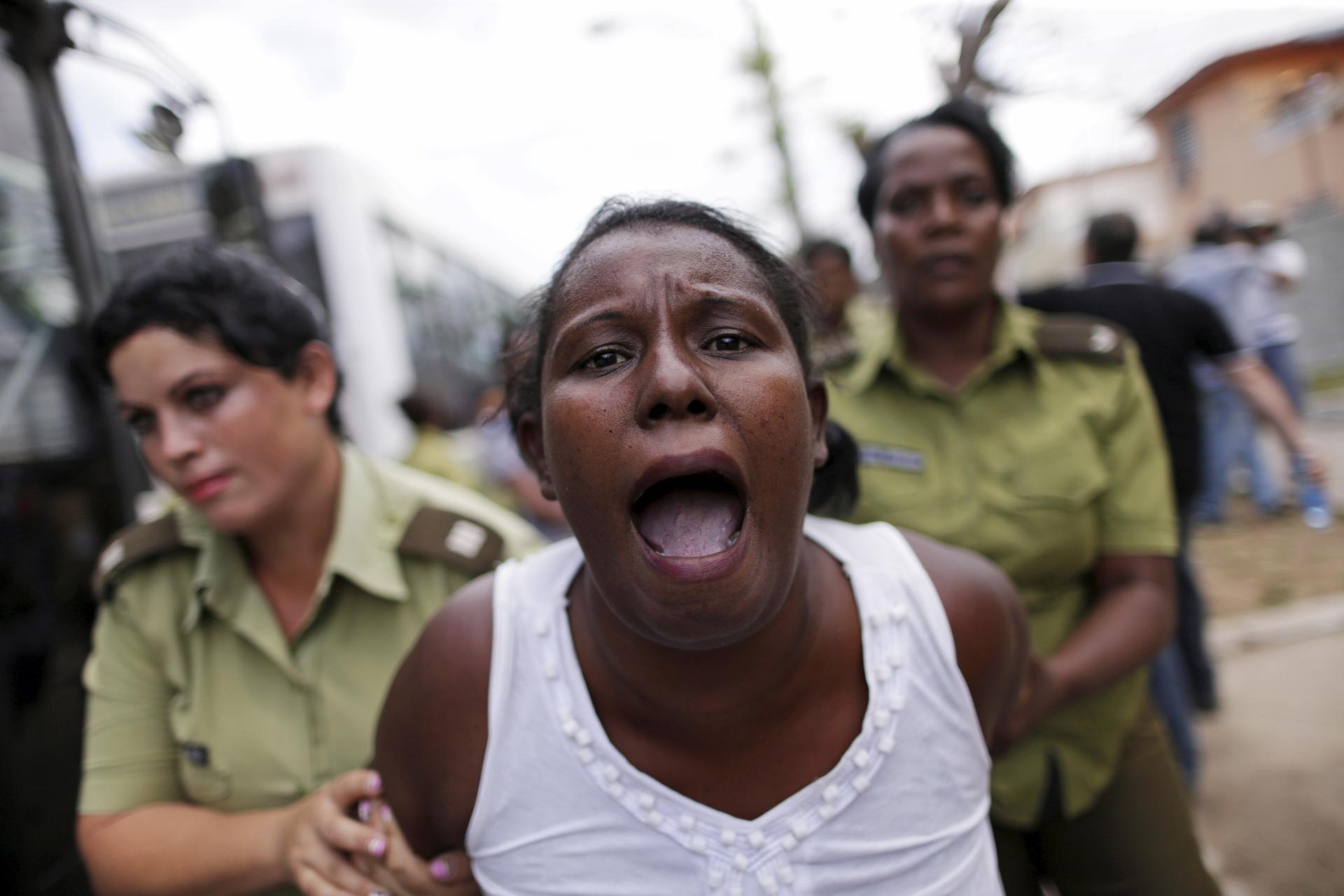The global spotlight isn’t stopping the Cuban government from cracking down on dissidents
A member of the 'Ladies in White' dissident group shouts as she is led away by police officers after they broke up a regular march of the group, detaining about 50 people, hours before U.S. President Barack Obama arrives for a historic visit, in Havana, Cuba.
On Sunday, just hours before President Barack Obama touched down in Havana, Cuban officials arrested dozens of protestors — even as reporters looked on.
Activist Antonio Rodiles — one of the dissidents slated to meet with US President Obama this week — was among them.
He was released hours later.
“The arrest was really violent … they beat us and pushed us. In my case, they broke one of my fingers. In the case of the women, they also beat their bodies. They don’t have limits. They can do many things," Rodiles says.
Rodiles says activists were protesting peacefully when they were arrested, and the police never gave him an explanation as to why.
“They don’t have any justification, because here in Cuba, they are the law,” he says. “They can do anything they want.”
In his meeting with Obama, the activist says he plans to say the political process between the US and Cuban governments is headed in the wrong direction, and the Cuban government is taking advantage of the situation so as to transfer more power to the Castro family.
“I don’t think this is a good moment to come here,” he says. “I think [Obama] needs to take advantage of this trip and he needs to talk clearly about what is happening inside Cuba, and what they want for the future.”
Obama and Cuban President Raúl Castro held a joint press conference on Monday, which BBC reporter Will Grant says was to talk about the ground the two have covered in the past 15 months. But, he says, there was definitely an acknowledgment of the distance that remains between them.
Grant says it was extraordinary to watch Castro answer questions from the foreign press, because it so obviously made him uncomfortable.
"He certainly, I don't think, will be doing it again in a hurry," he says.
Raul Castro, "Give me a list, give me a name.." when asked about political prisoners in #Cuba by CNN's @acosta https://t.co/RuHsrBvuE9
— WSVN 7 News (@wsvn) March 21, 2016
Rodiles says he’s certainly not alone in feeling that Obama's trip comes at a bad time. But in the current climate, he says, people are too scared to speak out, because they can be beaten and their property confiscated.
At the end of the day, he says, if he could get Obama to accomplish anything during this trip, he’d like Obama to start a real conversation about human rights in Cuba.
“The repression needs to stop right now, in order for this country to move forward,” he says.
Grant says, in general, Cubans seem to be excited about Obama's visit. Many of them didn't think they'd live to see the day, he says.
"I'm sure the dissident community are angry about certain moments of the visit that they don't feel that they've been properly represented," he says. "But by and large most Cubans aren't dissidents, and they're simply celebrating the fact that President Obama and President Castro appear to have been able to turn a page on some of the worst moments of their shared history."
We want to hear your feedback so we can keep improving our website, theworld.org. Please fill out this quick survey and let us know your thoughts (your answers will be anonymous). Thanks for your time!
